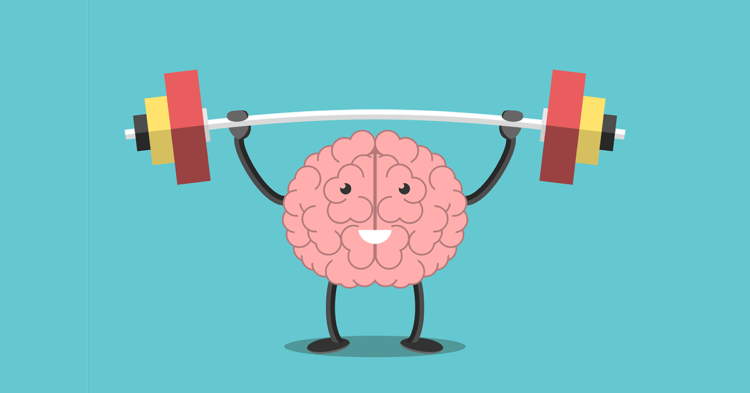Recent changes in America and around the world have significantly impacted mental health. New restrictions and social distancing have placed limits on the types of recreational activities that people can do to reboot and unwind, yet at the same time, an unprecedented number of Americans are feeling anxious and stressed-out, according to multiple news reports.
This new reality can pose mental health challenges for anyone. In the absence of familiar and healthier outlets for stress relief, it’s both easy and tempting to turn to less healthy outlets to cope. But junk food, binging on Netflix, or overindulging in alcohol can become a habit that’s not good for mental or physical health.
Take drinking, for example. What begins as a couple of glasses of wine each night to unwind can soon escalate into a bottle of wine every night. Soon, the person may be clinically depressed with an alcohol problem that needs medical detox and treatment, according to behavioral health experts at FHE Health.
How Playing a Sport Can Improve Your Mental Health

For many people, then, the key to maintaining mental health during a time of tightened restrictions and higher stress and anxiety is to get creative and try out some new outlets for stress relief. Sure, many of one’s old haunts and hobbies may not be available (that popular yoga class at the gym, favorite live music venue, or weekly worship service, etc.). Even so, there may be some new outlets for stress relief that are worth a try.
One such outlet might be a new sport—especially if it can be done outside, doesn’t require a big crowd, and allows for social distancing. (Other safety precautions may also be necessary depending on the activity and state or local guidelines.) On this note, here are six ways that playing a sport can improve one’s mental health.
1. Reduced Depression and Other Mental Health Symptoms

Even small amounts of exercise—just one hour per week—can prevent depression, a 2017 study in the American Journal of Psychiatry found. The study, which followed more than 30,000 Norwegian people and traced their exercise routines over 11 years, was the largest of its kind.
On the flip side, stopping exercise can increase depressive symptoms, according to 2018 research at the University of Adelaide. And, findings by the Anxiety and Depression Association of America have revealed that for some people, exercise can be as effective as medication for relieving anxiety and depression symptoms. If you are struggling with those problems, you can always search for help from definingwellness.com.
2. Better Cognitive and Life Problem-Solving Skills

Playing a sport can also boost brain functions related to visual-spatial learning and problem-solving. In the case of the latter (problem-solving), it’s not dissimilar to the kind of cognitive work involved in solving a Sudoku puzzle—the only difference being that sports-related problem solving is more active, involving physical participation as well.
When you play sports, you also build life problem-solving skills. Author Dr. Chris Stankovitch has divided these problem-solving skills into two categories: systematic and spontaneous. Systematic problem solving can involve brainstorming different outcomes and solutions and weighing options (for example, strategizing a hole-in-one in golf or a good team offense in a game of soccer).
Spontaneous problem solving refers to those in-game challenges where there’s little time to think and process, and teammates have to adapt and bounce back. Another example of spontaneous problem solving: deciding in the moment where to turn and when to brake while mountain biking down a narrow trail with fellow biking enthusiasts.
It’s not hard to see how systematic and spontaneous problem-solving skills can strengthen anyone’s mental and emotional resilience. In this sense, they are another invaluable mental health benefit of taking up a sport.
3. Improved Mood and Lower Stress Levels

Many sports involve some degree of aerobic exercise and training, which research has shown can improve and regulate moods. Studies into how aerobic exercise affects mood have revealed some promising findings of the mental health benefits. Researchers found that even just 15 minutes of exercise daily boosted mood, according to Harvard Health.
Along with better mood, Harvard Health has also reported that less stress—and, in turn, more rest and relaxation—are another mental health benefit of exercise. That’s because exercise reduces levels of the body’s stress hormones adrenaline and cortisol while stimulating the production of more endorphins. It’s a natural high that many people keep coming back to.
4. A Sense of Social Connectedness

A sense of social connectedness is associated with higher levels of happiness and better mental health. For example, people with drug and alcohol addictions who report higher levels of social connectedness, thanks to the support of family and/or of peers in groups like Alcoholics Anonymous, tend to achieve better treatment and recovery outcomes. They are less likely to relapse than people without the same level of social support and connectedness.
Meanwhile, the opposite of social connectedness—social isolation and loneliness—is a predictor of more health problems and lower quality of life. In fact, recent findings have suggested that loneliness may be riskier to health than smoking or obesity. (Mental health conditions occur at higher rates among people who are smoke and obese, and the same is true for people who are lonely.)
5. Personal Growth

Playing a sport is also an outlet for personal growth and self-improvement. When a person learns how to work effectively as a member of a team to accomplish shared goals, they develop critical interpersonal skills that they can apply to other areas of their life. Similarly, when someone shows the self-discipline required to wake up at 5am every morning for boot camp in the park, that can be a rewarding source of pride, achievement and self-discovery. They’re learning what they can achieve and consequently gain a greater sense of purpose and self-mastery.
6. A Boost in Self-Esteem

With strides in personal growth comes a boost in self-esteem—another important mental health benefit of playing a sport. A healthy sense of self-esteem is crucial to mental health. For instance, a 2017 study in the journal Child Adolescent Psychiatry Mental Health found higher self-esteem correlated with fewer symptoms of anxiety and depression in teens. Similar findings apply to adults. The takeaway: The healthier one’s self-esteem, the better their mental health.
Together, these six mental health benefits of playing a sport are a good case to join the local running club, start a neighborhood yoga group at the park, or begin taking tennis lessons. Your mental health will thank you.
The article is provided by Dr. Beau Nelson, DBH, LCSW.
 Hi Boox Popular Magazine 2024
Hi Boox Popular Magazine 2024



